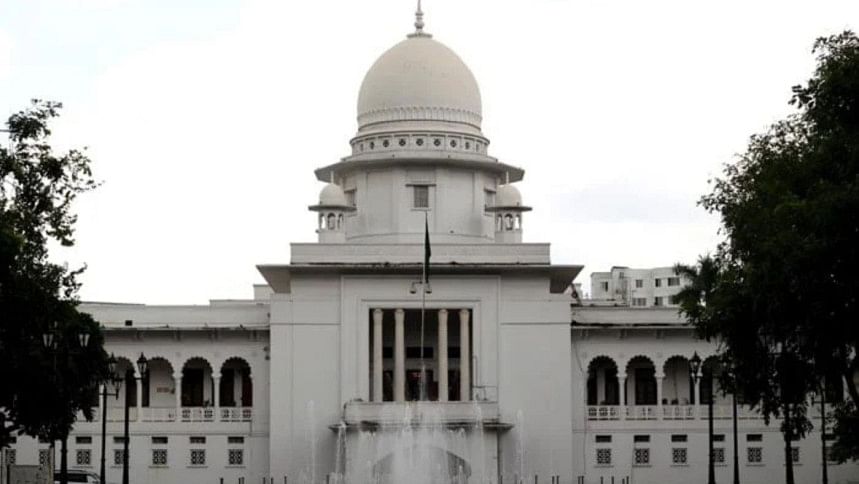Violence against women, children: Over 35,000 cases unresolved for over 5 years

More than nine years have passed since a case was filed over the rape of a nine-year-old schoolgirl in Dhaka's Khilkhet area. The tribunal dealing with the case has framed charges against the lone accused and held 96 hearings but is yet to complete the trial.
However, a provision of the Women and Children Repression Prevention Act says the court is supposed to dispose of such a case within 180 days from the start of proceedings.
The key reason behind the delay is that six of the 10 prosecution witnesses in the case have not appeared before the court to testify.
At a hearing on April 15 this year, the judge of the Women and Children Repression Prevention Tribunal-8 said, "The failure to produce witnesses on time has caused the unnecessary delay in disposing of the case."
The tribunal issued non-bailable arrest warrants against four witnesses and ordered four police stations in Khilkhet, Gaibandha, Nilphamari and Madaripur to produce them before it on May 21. However, they were not produced before the court that day, said a court staffer.
Contacted, officers-in-charge of the police stations said they didn't receive any court order to produce witnesses.
This is just one of 35,262 cases, filed under the Women and Children Repression Prevention Act, which remain pending with courts across the country for more than five years, prolonging the victims' wait for justice.
The number of pending cases filed under the Act stood at 1,48,314 till March 31 this year. Of those, 33,485 were filed in the past year alone, says a Supreme Court report.
Legal experts say trials of these cases could not be completed within the 180-day time frame due to various reasons -- witnesses don't appear at courts to give statements, prosecution lacks sincerity regarding trial, and many of the accused move to the High Court to stay trial proceedings.
Around four years ago, a special cell was formed in line with a 2016 HC directive to keep track of the cases filed under the Act. But the cell is not operational now, according to SC sources.
In its directive, the HC said the cell, led by the SC registrar general or the registrar of the HC Division, would monitor whether trials of such cases are completed within 180 days. The cell would submit reports to the authorities concerned from time to time for taking appropriate action.
Contacted, SC Spokesperson Muajjem Hussain said he was unaware of the current status of the monitoring cell.
He said 13 committees led by HC judges were formed a few months ago to expedite the trial proceedings of all types of cases, including those filed under the Women and Children Repression Prevention Act.
Seeking anonymity, a law ministry official told this newspaper that 101 tribunals are now dealing with the cases under the Act, and the government plans to set up more tribunals to increase the disposal of such cases.
WHAT LEGAL EXPERTS SAY
Criminal law expert Khurshid Alam Khan said that since the 180-day time frame for completing trial in cases filed under the Act is not mandatory, the prosecution must be sincere in completing trial within the time limit.
"A separate secretariat under the SC should be established to monitor the execution of the directives by the Appellate Division and the High Court and take necessary measures."
Shukla Sarwat Siraj, a lawyer at the SC, said, "The country's criminal justice system has failed to effectively protect women and child victims from violence.
"We have great laws but those are not properly enforced. Many victims refrain from reporting crimes because of social stigma, the culture of victim shaming, and intimidation by the perpetrators."
Victims are often pressured to negotiate settlements with the perpetrators. Besides, police and local influentials sometimes work in favour of the accused, she noted.
"We lag behind many other countries in terms of collecting and preserving DNA-based evidence. We need more tribunals, dedicated prosecutors, and strict adherence to the 'no adjournment policy'. More importantly, we need social awareness."
Legal expert Ishrat Hasan said the Act was designed as a fast-track law to protect the most vulnerable women and children from violence and abuse.
"Yet, thousands of cases filed under the Act remain stuck in the system despite a 180-day time limit for disposal of such cases.
"Police investigations are often incomplete or get delayed. It takes months, sometimes even years, to get critical forensic evidence, such as DNA reports, due to poor infrastructure. Overburdened special tribunals grant frequent adjournments, while witnesses don't show up at courts out of fear or due to intimidation.
"Victims and their families face social stigma and economic hardship as they have to attend court proceedings over a long period. Many lose hope and abandon the legal battle. This is why conviction rates are alarmingly low -- below 3 percent -- in many districts.
"This systemic failure demands urgent reform. The government must expand tribunals, equip police with resources, and ensure the protection of victims from threats," added Ishrat.


 For all latest news, follow The Daily Star's Google News channel.
For all latest news, follow The Daily Star's Google News channel. 








Comments